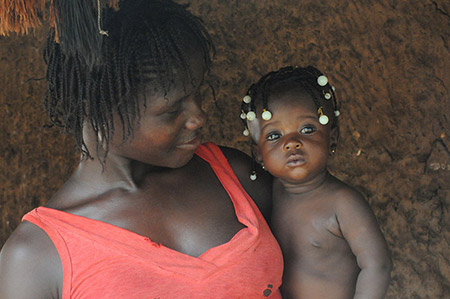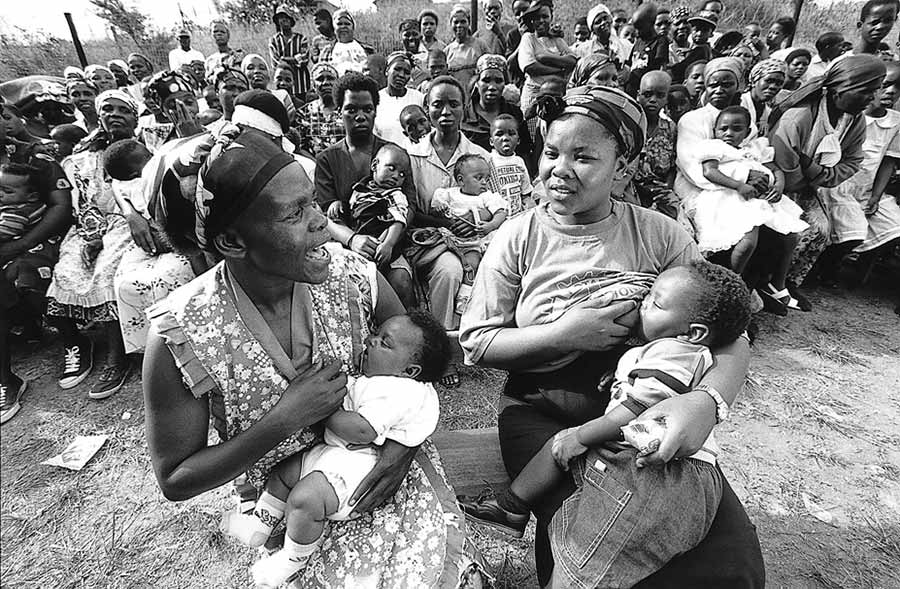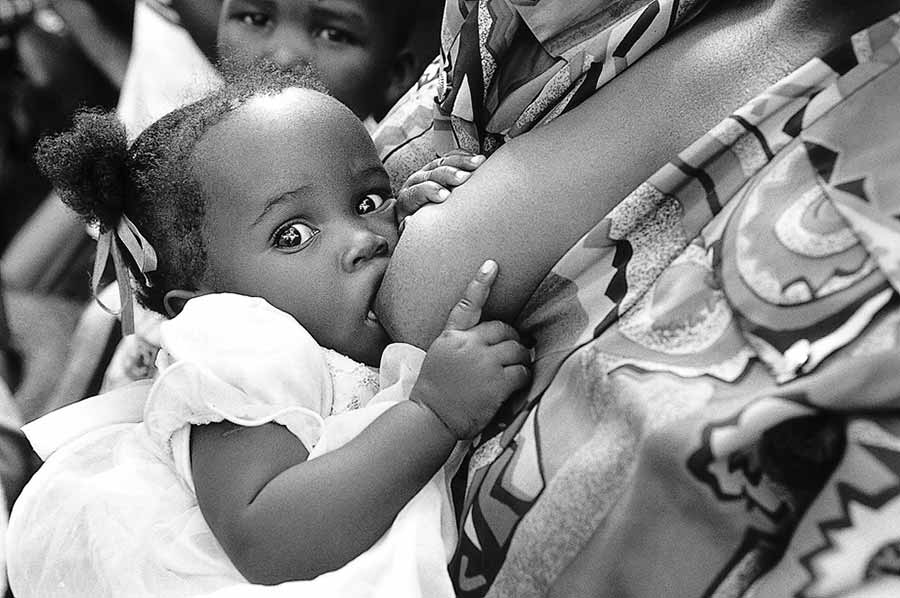
By:
- Bonnie Ward
Published Date
By:
- Bonnie Ward
Share This:
UC San Diego Research Collaborations Prompt Selection of South Africa for International Lactation Conference
Conference to spotlight acute need for breastfeeding in developing countries

In a country burdened by myriad infectious diseases and widespread poverty, the value of breastfeeding to improve infant health cannot be overstated.
Such is the feeling of Lars Bode, an associate professor of pediatrics at UC San Diego whose research collaborations and leadership led to the selection of South Africa as the unprecedented site for a major international lactation research conference.
The International Society for Research in Human Milk and Lactation (ISRHML) conference, to be held March 3 -7, 2016 in Stellenbosch, South Africa, will bring together lactation experts from all over the world to discuss the latest research findings.
“Breastfeeding in a developing country is so important,” said Bode, president-elect of ISRHML. “There are so many pathogens, sanitation issues and other problems that the health benefits of human milk are even more beneficial than in the western world.”
By holding the conference in South Africa, Bode hopes to raise awareness of the importance of breastfeeding among the country’s residents as well as to encourage greater involvement from African researchers. “The conferences have never been held on the African continent,” said Bode, noting previous locations have included North America, Europe, Australia and Peru. “Locating in South Africa will allow scientists from western countries to get more exposure to researchers and the problems experienced in other areas of the world. It will also make it easier for scientists there to participate. We feel this is critical since South Africa is one of the areas of greatest need.”

Photo by Giuocommo Pirozzi (UNICEF photographer)
The need to encourage breastfeeding in South Africa arises from many factors, said Bode. Malnutrition is a primary concern. While it boasts several large and modern cities and the second largest economy on the African continent (after Nigeria), South Africa also has widespread poverty, high crime rates and persistent unemployment. Approximately 23 million people or 45.5 percent of the population, many of them rural inhabitants, live in poverty, according to 2014 data.
“Africa, including South Africa, is home to many of the world’s 36 high-burden countries, with regards to maternal and child malnutrition,” said Evette van Niekerk, in the Division of Human Nutrition, faculty of medicine and health sciences at Stellenbosch University in South Africa. Undernourished children have an increased risk of falling sick and greater severity of disease. In South Africa, 16 percent of child (under five) mortality is due to diarrhea or pneumonia, according to statistics compiled by the United Nations Children’s Fund or UNICEF. “Optimal breastfeeding of infants under 2 years of age has the greatest potential impact on child survival of all preventive interventions in a developing country such as South Africa,” said van Niekerk, the local organizer of the conference and a Bode research collaborator.
Along with problems of malnutrition, South Africa has a high disease burden, including one of the largest numbers of HIV-infected adults and children in the world. While a high rate of HIV infection might seem to preclude breastfeeding (one-third of the country’s pregnant women are estimated to be HIV positive), experts say breastfeeding’s benefits outweigh the risks, particularly with the use of HIV drugs.
“We’re comfortable with encouraging breastfeeding largely due to the advent of antiretroviral drugs,” said Dr. Mitch Besser, a former UC San Diego professor and founder of mothers2mothers, a South Africa-based nonprofit dedicated to ending pediatric AIDS. “If mothers and babies take the drugs properly, the risk of infection is very low.”

Photo by Giuocommo Pirozzi (UNICEF photographer)
Also helping to safeguard against mother-to-child HIV transmission during breastfeeding is a natural substance first identified by Bode’s lab in 2012. Bode and colleagues sought to find out why the vast majority of infants breastfed by HIV-infected mothers do not acquire the infection, despite continuous exposure to the virus in their mother’s milk. Their discovery of a carbohydrate in human milk, known as oligosaccharides, that reduces the risk of HIV transmission during breastfeeding drew international headlines.
Bode’s studies involved testing HIV-infected women in Zambia, north of South Africa, and led to his growing interest in advancing breastfeeding in Africa. He credits UC San Diego’s Center for AIDS Research for providing the study’s seed money. The surprising finding also led to subsequent collaborations with van Niekerk and other researchers at Stellenbosch University on HIV and breastfeeding “It is these collaborations that ultimately resulted in having this conference in South Africa,” he said.
Besser, whose organization taps local mothers to serve as mentors to HIV-infected pregnant women and new mothers, praised the decision to hold the lactation conference in South Africa. Mothers2mothers encourages medication adherence and other healthy practices by HIV-infected new and soon-to-be mothers. “This is where the problems are most acute,” said Besser, noting that breastfeeding is healthier and, in a country like South Africa, often safer than formula feeding. “Many mothers (in poor rural areas) don’t have access to safe drinking water or formula or may mix weak formula to stretch its use,” he said. “Breastfeeding in the first year of life is one of the central pillars everywhere. It leads to less illnesses, fewer infections. The child grows up to be healthier.”
Share This:
You May Also Like
Stay in the Know
Keep up with all the latest from UC San Diego. Subscribe to the newsletter today.


